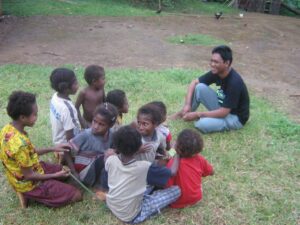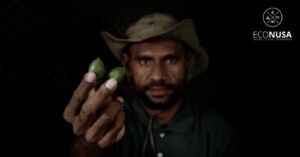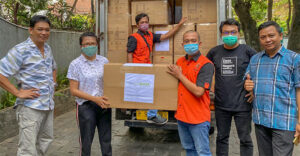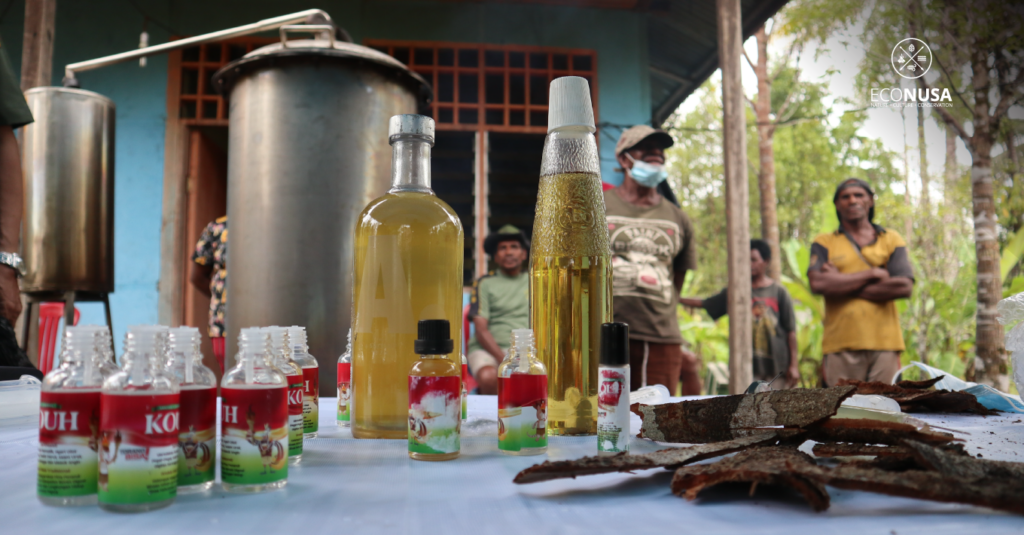
The fragrant of spices smelled from a large boiler at an adult height in Mandobo Village, Kouh District, in Boven Digoel Regency, Papua. On the boiler cap, it is connected with a small pipe that drips clear and aromatic drops. The clear drops of refinery here is collected in a pot. “We are refining the skin of lawang wood for its oil. We sold lawang oil we produced on the National Sport (PON) Papua,” said Fayaho Wanimba, the group leader of Fina Fenandi Oil Refinery, on Wednesday, 24 November 2021.
Fayaho then referred to the glass bottles containing yellowish liquid on the table. As to Fayaho, it contains refined oil after several days of collection and filtering. It takes a week to settle and separate water from oil. “Lawang oil here is heavier than the other type of oil. The water will be under the oil layer. But the water will be on top layer of lawang oil,” said Fayaho.
Lawang oil is external medicine which is extracted from oil substance of lawang wood skin (Cinnamomum culilawang). The oil efficacy is to relieve rheumatism, stiffness, gout, and accelerate healing process of outside wound, stomachache, and sprain. Fina Fenandi group got the wood from forest surrounding Kouh District. They took wood with 20-30 centimeters in diameter. They take the skin and chopped by using hammer. The rough chop was again chopped by a machine. Then the minced skin is dried to reduce the water before traditional refinery process.
Read Also: Wambon Floss, New Gift from Boven Digoel
In the past three years, Fina Fenandi has produced the oil here. The group has 15 members residing in Kouh District. There are three tribes here, namely Mandobo, Wanggom, and Awyu, and three villages, namely Kouh, Mandopo, and Jaer. “In Kombai and Wanggom Tribes language, Fina Fenandi means one mind and one voice,” said Fayaho.
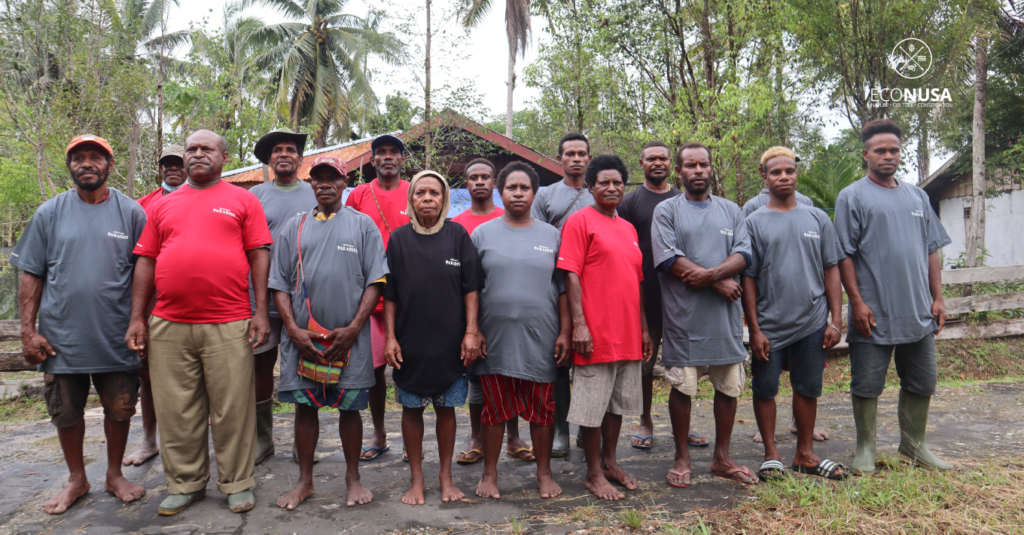
Fina Fenandi Community Group has been assisted by the Production Forest Management Unit (KPHP) LIII of Boven Digoel Regency, one of the Regional Technical Implementation Units (UPTD) of Papua’s Forestry Office, with EcoNusa’s support. As to Head of KPHP Boven Digoel, Ade John Moesieri, the production of lawang oil here is the initiative of Fina Finandi.
Read Also: Samb Kai Village School, Building Local Resilience in Merauke
Fayaho and his colleague realized that the existing natural potentials surrounding Boven Digoel. They have seen some other institutions and given samples of their oil product, but to no avail. Then, they came to see KPHP to ask for assistance. “Boven Digoel has large forests with massive products, but lacking optimum management. We try to provide assistance to raise the people’s welfare,” said John.
KPHP brought their oil product in the PON XX event held in Papua on 2-15 October 2021. Around 170 bottles of 10 milliliter and 30 milliliters were sold out in Jayapura. “We see it has prospective market,” said John. To develop the oil production, KPHP attempts to construct production house to get distribution permit as mandated by the Drugs and Food Supervisory Agency (BPOM).
Fina Finandi continues to learn to upgrade their skills. As to Fayaho, they will try to take the wood skin without cutting the tree as the oil materials. They might cut partly of the wood skin as needed and let the new skin grow. They also plan to cultivate the lawang tree in the long run. “Thus, we will not destroy the existing forest,” he said.
Read Also: Econovation: Business Innovation Changes Incongruity Into Opportunity
EcoNusa’s Strategic Communication Manager Nina Nuraisyah said that EcoNusa supported all good practices here. She appreciated Fina Fenandi that keeps learning to manage forest product without destroying it. “EcoNusa always provides support to any effort that could improve the community welfare surrounding forest while conserving forest,” she added.
Editor: Leo Wahyudi


